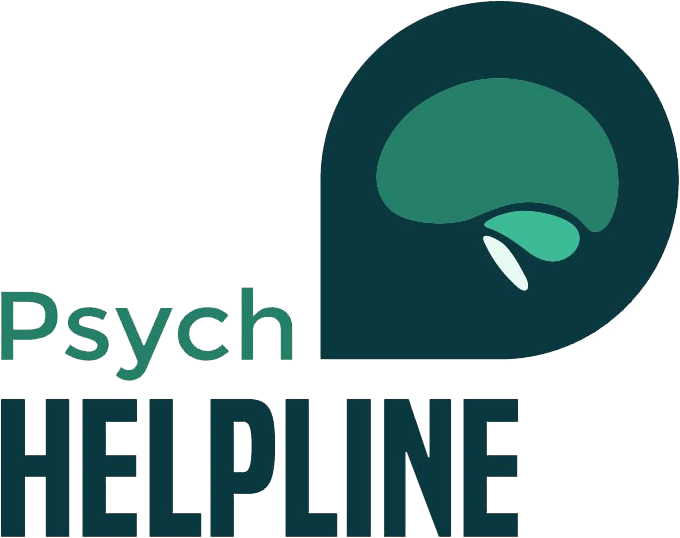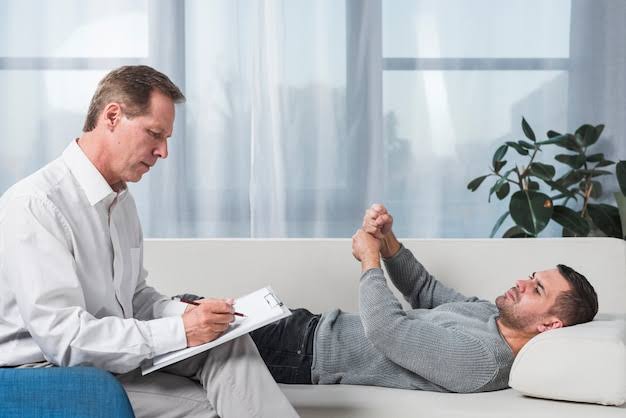Table of Contents
If you have given your symptoms a thought and a psychological anomaly seems to be taking its course, the only practical option is therapy. Therapy is a scary thing for most people special for those who have no experience related to it or have been misled by biases. It takes a lot of courage to take about private matters, traumatic events, and confidential facts with a total stranger so if you are fearful it is understandable.
It might take some time to make up your time but in the meantime, you should know what should be your first step if you aim on giving therapy a shot. Initial consultation with a trained therapist is your best chance at extracting as much information as you can and shedding all the rumors you’ve been believing for a while. In laymen’s language, an initial consultation is a session that’s carried out prior to the start of the first session.
This meeting is a stage where both the client and the therapist have a chance to get to know each other. Both parties can then proceed with any future sessions based on the results of the initial consultation. A large variety of private counselors and practitioners provide free initial consultation as it can often build trust. Despite being a common practice, it’s not required by a therapist to provide an initial consultation to a new client free of charge.
Initial Consultation: What Should I Expect From A Therapist?
First and foremost, what needs to be understood is that initial consultation with your therapist will be unlike a therapy session. This isn’t the beginning of therapeutic practice, on the contrary, it’s a prerequisite to that and sort of an introduction. This is why it would be a bit more casual and won’t follow the same format as a typical therapy session.
During the initial consultation with a therapist, you can expect him/her to analyze your case by asking various questions. The purpose behind this is to extract as much basic information as your therapist can possibly get from you. This will, later on, lay the foundation for the therapeutic approach he plans on taking with you according to your symptoms. Some common questions that you can expect during an initial consultation with a therapist could be;
- Have you tried therapy before?
- If you haven’t tried therapy before is there a particular reason why you are considering therapy now?
- Is there a recent life event or major change that prompted you to seek professional help?
- What are you expecting from this therapy program?
- On what basis do you judge the workability of a therapy program and the abilities of your therapist?
- If you have tried therapy before did it temporarily provide relief?
- What were the shortcomings in your previous encounter with therapy?
- Which therapeutic approach fitted your case in the past?
- Additionally, he might also inquire about your current life circumstances, your background, etc. For instance, you can expect questions based on your social background, sexuality, family life, professional life, etc.
You can also expect your therapist to ask questions on topics you are not yet ready to talk about. Talking about traumatic incidents might be triggering for you at this stage so you can inform him/her about this aspect. You should be expecting him to ask questions on subjects like these but you can take this opportunity to announce that you don’t feel comfortable discussing it yet.
Once he’s done questioning you, you’ll probably be presented with an “Informed Consent” document to sign. Signing onto this piece of paper ensures that you have given your consent for these therapy sessions and this is a testament to your agreement to enter into therapy. You can expect this document to include your name, your therapist’s name as well as his licensing information. Additionally, it’ll include any practice policies as well as the charges for the entire program. It will also mention the therapeutic approach your therapist plans on taking, an agreement of total confidentiality as well as your rights as a client.
10 Tips Worth Noting If You’re Getting An Initial Consultation
Give Yourself A Pep Talk
Seeking therapy can be a huge deal if you have never tried seeking professional help before. Your nerves would probably be on edge at the thought of bearing your soul in front of a stranger. This is why you must dedicate a decent amount of time to convincing yourself that this is all for the better. Take this time to do your research on your symptoms, how one must engage with a therapist, or what exactly happens during an initial consultation.
Take Notes So You Can Be More Descriptive
Before you head out of the house, grab a lightweight purse because you’ll need to carry around a portable notebook and a pen. Taking notes during an initial consultation will come in handy later on. It is difficult to remember.
Take A Break From Everything Before You Leave
Take a break from work on the day of your initial consultation. If you have any other important things to attend to, they can wait. You must clear your mind, and settle down mentally and emotionally before you’re actually ready to speak on a serious matter like this. This also means that you should take a social media break and go off the radar for at least 24 hrs. before the initial consultation. Take this time to think about what you’re going to discuss or what kind of inquiries you should make from a therapist. Additionally, doing all these things can make you feel more at ease and prepare you for the day that awaits you. Additionally, your mind won’t be focused on anything else and your sole attention would be on one thing only.
Narrow Down Your Goals & Your Fears
Grab a pen and paper before you head over for your initial consultation. If you are going to convey what you’re dealing with and what’s on your mind you’ll need to be more comprehensive. So, really give this whole therapy discourse a thought and jot down any short-term or long-term goals you have. Do you have any fears associated with therapy based on something you heard? Make bullet points and discuss them during the initial consultation. This will help waiver any hoaxes and biases once your therapist answers your questions.
Additionally discussing your goals will indicate in the future whether or not these sessions have actually been successful. For instance; if you have social anxiety, the goal you must’ve discussed during the initial consultation could be your wish to attend a college party without feeling like your peers are judging you. If you are actually able to do that following a few sessions, therapy might actually be doing its magic on you.
Inquire As Much As You Want To
Take full advantage of the fact that you can ask questions about anything at this stage. To be more descriptive this is your chance to narrow down any probable queries you have in your mind related to the program. You can inquire regarding the clinical approach your therapist plans on taking with you. For instance, there’s an abundance of various therapeutic approaches like; CBT, DBT, humanistic therapy, eclectic therapy, music therapy, etc. Ask questions regarding your therapist’s views on recovery and what seems like a successful therapy program to your therapist? Another great question could be about any drawbacks related to the approach you’ll both be taking or if there’s anything you can do to maximize the impact of therapy.
Put Yourself At Ease
Reminder, this session is all about you. It doesn’t matter how you appear or what you’re wearing, what matters is that you’re being organic with your approach to therapy. Chose the day that suits you best and don’t go too over the top with external presentation as it doesn’t really matter. You have to believe the fact that the person you’re visiting only cares about what’s going to happen during the initial consultation. So, make sure you’re feeling truly comfortable in what you’re worrying instead of wearing something uncomfortable that’ll divert your attention while engaging in dialogue.
Settle Down The Logistics
In order to avoid any future grievances settle down logistics during the initial consultation. This is the perfect opportunity to ask your therapist about any sliding scale options. You can ask questions regarding the charges for the entire therapy program and whether or not your health insurance can cover the charges. It is better to keep documentation related to your health insurance handy before you attend the initial consultant. Another essential question could be inquiring about per session charges. If you’ll provide documentation with accurate information regarding your insurance, the therapist in question can provide information regarding coverage and costs on the spot.
Be Prepared To Honestly Share Your Previous Experiences With Therapy
Perhaps the most essential thing when it comes to therapy is honesty. If you’re not being entirely honest, you’re paying for something that won’t bring any positive conclusion for you in the future. Some people tend to overshadow facts by purposely misleading their therapists from the get-go.
Thus, you can expect them to lie about their symptoms despite willingly agreeing to attend therapy. Sometimes they lie in order to save face value or to not feel judged by someone who’s in front of them. This can then lead to a series of lies that affects the entire therapy program because you’re simply refusing to be honest with your therapist. So, you must actualize this principle at this very moment; never under any circumstances lie during the initial consultation or therapy sessions in the future. Your therapist isn’t going to judge you based on any shameful or embarrassing things.
Give Yourself Enough Time To Reflect
This is the one thing that’ll determine the nature of your recovery in the future. At this point, you are more than ready to sit down and go over the whole thing. Before you pay for the therapy sessions to come or sign a contract, give yourself enough time to process what you have seen. You should look for answers to questions like these before agreeing to attend a therapy program under the supervision of a therapist;
- Are there any reasons why I wouldn’t feel comfortable sharing more with this therapist?
- Do I feel heard while talking about what’s happening to me?
- Does this particular therapist respect my boundaries?
- Am I being analyzed by someone who actually seems to be knowledgeable and has enough experience?
Make Alterations For The Future
At this stage, you can decide how things should be in the future. For instance, you can take notes of what seemed to resonate with u during the initial consultation and what didn’t. Sharing this information will make your therapist adapt more successfully to your case based on what seems right. Additionally, you can set up the time or days of the week according to your schedule if your therapist seems to agree. The point of making alterations is to make sure you feel your best and don’t rush in or out of sessions. You can ask your therapist for phone or online therapy sessions if you have to attend these sessions remotely every once in a while. If it seems suitable to your therapist then this alteration can be made according to your schedule. Your case is different from any other case your therapist is dealing with so make sure you’re being open about what you need in order for him to make any changes.
Final Words
Lastly, don’t rely on the word of mouth during the initial consultation. You have the right to demand any relevant information related to your therapist’s academic background and certifications. Before you sign any documentation or pay dues, ensure that you’re actually satisfied with the person you are working with. Take your time with these sessions and remember you have the opportunity to switch therapists if these sessions don’t prove to be fruitful after a while.







